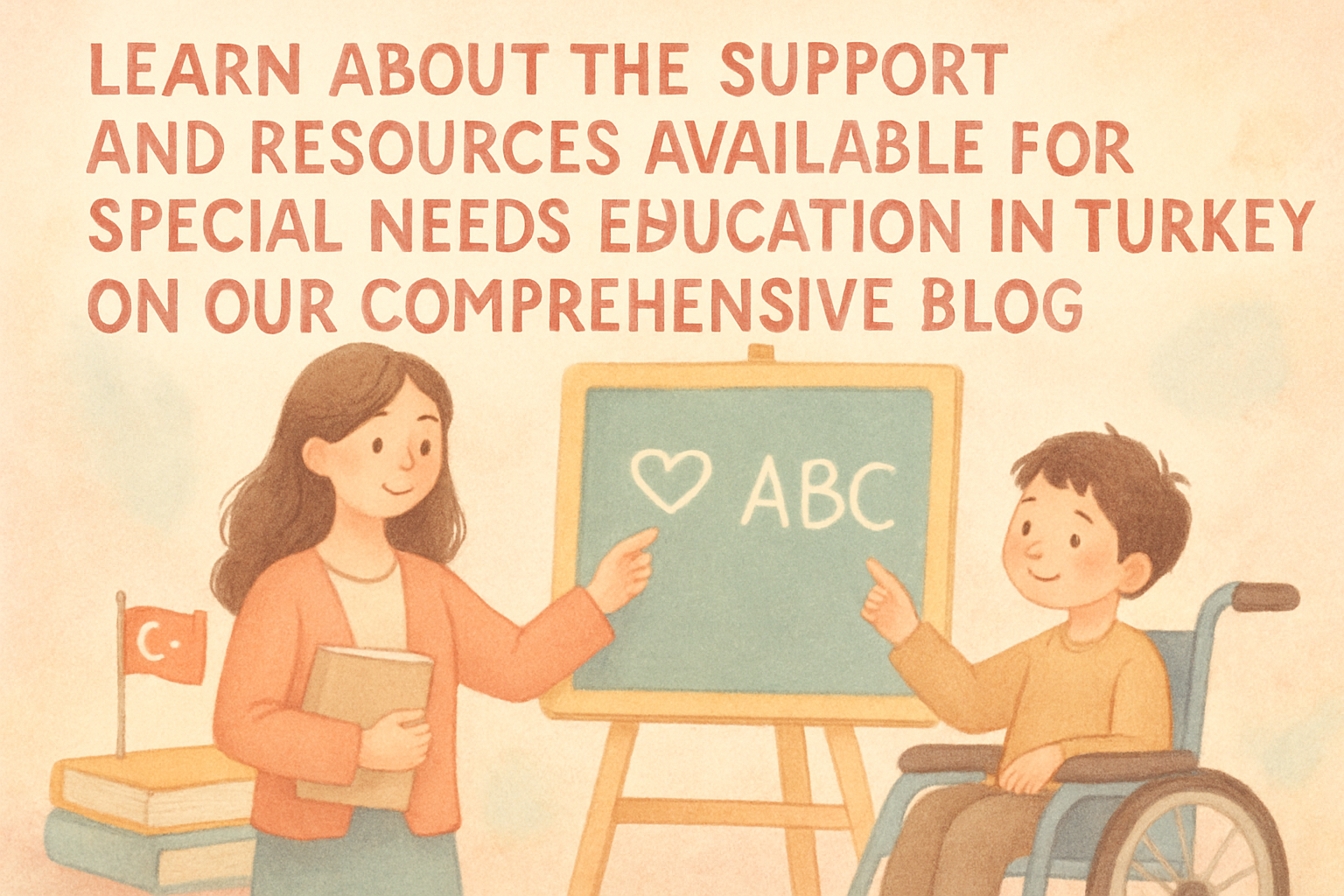Special Needs Education in Turkey: Available Resources

Modern expat families face a unique set of challenges when moving abroad. For those raising children with special needs, settling in a new country can feel daunting, especially when it comes to finding the right educational support. Turkey, with its growing international community, provides a range of resources for special needs education. Understanding these opportunities enables parents to provide their children with the best possible start. This guide explores the specialized services, legal framework, and daily realities of special needs education in Turkey, ensuring expat parents can navigate this journey with confidence.
Understanding Special Needs Education in Turkey
Special needs education in Turkey has evolved significantly over the last decade. Turkish law recognizes the rights of children with disabilities to receive inclusive, personalized education. The Ministry of National Education (MoNE) coordinates services, ensuring that children with diverse needs access learning environments tailored to their abilities.
The Turkish system offers two principal pathways for special needs education:
- Inclusive education within mainstream public schools
- Special education schools for students requiring more intensive support
Parents receive support from Psychological Counseling and Guidance Research Centers (RAM), which determine each child’s learning needs after a thorough assessment. Plans focus on maximizing individual strengths and fostering independent living skills. Several public schools accommodate students with autism, Down syndrome, ADHD, learning disabilities, and sensory or physical impairments.
Key Resources for Expat Families
Relocating families often worry about language barriers and finding institutions that welcome diverse learners. Turkey provides valuable resources dedicated to both local and international students. Key resources include:
- RAM Centers: Every province in Turkey has at least one RAM, where psychologists and educational experts evaluate students and recommend placement options.
- Special Education and Rehabilitation Centers: These private centers offer individualized therapies, including speech, occupational, and physical therapies. Many have staff fluent in English.
- International Schools: Most international schools in Istanbul, Ankara, and Izmir provide some support for mild learning differences. Some schools employ Special Educational Needs Coordinators (SENCOs).
- Support Networks: Expat social groups and online forums help parents share experiences, recommendations, and emotional support.
One example is the Istanbul-based “Steps International School,” which offers tailored curriculum support to students with mild to moderate difficulties. Meanwhile, private rehabilitation centers like “Bilgi Rehabilitation” work directly with families to deliver therapies in English, easing communication concerns.
Navigating the Legal and Assessment Process
Understanding the legal process ensures children get proper placement and support. When parents suspect or have a diagnosis, they contact the local RAM for an evaluation. The RAM guides families through each step:
- Initial parent-teacher consultations to discuss concerns
- Comprehensive assessment with psychologists and educators
- Creation of an Individualized Education Plan (IEP)
- Referral to public school, special school, or private therapy center
Expat families benefit by preparing documentation ahead of time, such as reports from previous schools or doctors. Translating these documents into Turkish streamlines the process. Upon arrival, parents also consult their embassies or expat groups for recent insights on school policies and cultural expectations.
Inclusive Practices in Turkish Schools
Inclusive education has become a growing priority for Turkish schools. Many mainstream schools assign resource teachers to support children with learning differences in regular classrooms. This approach enables children to interact with peers, fostering social development.
Benefits of inclusive schooling include:
- Exposure to diverse learning styles and backgrounds
- Participation in extracurricular activities and community projects
- Tailored lesson modifications and assistive technologies
- Opportunities for language acquisition within a real-world setting
Several teachers and specialists receive ongoing training to recognize autism spectrum disorder, dyslexia, or speech delays. For example, the “Inclusive Education for All” pilot scheme in Ankara provides weekly workshops to classroom teachers. Parents stay involved through regular meetings and feedback, ensuring their child’s needs remain a top priority.
Support Beyond the Classroom
Special needs education in Turkey extends well beyond academics. Various programs promote independence, social confidence, and vocational skills.
Examples of out-of-school support include:
- Private therapy centers offering physiotherapy, art, and music therapy
- After-school clubs adapted for children with disabilities
- Family counseling and parent training sessions
In major cities, organizations such as the “Tohum Autism Foundation” organize weekend activities for children and families. Summer camps and adaptive sports programs are available, providing safe environments to develop new skills. Many clubs welcome non-Turkish speakers, demonstrating Turkey’s commitment to serving its international community.
Resilience and community are central to the expat journey. With Turkey’s evolving framework and growing support networks, families discover that they do not walk alone.
